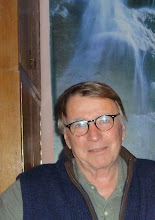

The Seminar
I teach a group on Tuesday evening from 18:00 – 20:00 that varies in size and composition. There is a handful of regulars who are always present. There are some who are usually present. There are many signed up for the class that I haven’t seen and wonder why they signed up. The roster has 38 names on it. I keep asking if these names are for real. Do these students not care about the consequences of not attending? I may be witnessing another version of a syndrome that we saw in a funded project in South Dakota a few years back. In that project, teachers had their tuition and costs paid for a masters degree in technology by the grant. This was an initiative of the governor as I recall who wanted to inspire more technology use in SD schools. Because they were paid no matter what the level of performance, some students didn’t put much effort into the courses. These students in my seminar have their way paid. There is no cost to them. So, if they miss a bunch of classes, it doesn’t matter. This actually is good for me as I couldn’t possibly deal with 38 active PhD students who have a very weak understanding of research methods and lack a grounding in their subject area fields. And, it is hard to put these people in touch with the resources they need to begin to work on a dissertation. The can only log into their library’s three data bases (JSTOR, Oxford Reference, and Cambridge Journals) from on campus. Other current library resources are almost non-existent. I post a few pictures above. Think of these as entitled the research library at ISU.
The students who are active are a wonderful group who would fit right in at UNL and would love the resource rich environment at a US university.
Ana—a woman who works at an Institute of Psychology and is a Deputy Director of Psychological Counseling and Training Centre at THE PATRIARCHATE OF ALL GEORGIA. She want to do her dissertation on ways to prevent drug abuse in Geogrian youth.
Eka is an Assistant Professor of languages at ISU. She wants to do her study examining how active learning improves the learning of a foreign language and I think is proposing an intervention study with an experimental and control group.
Nino, who discovered for the class how to log into JSTOR, wants to examine intercultural competence in Georgian high school students. By this term I think she means what we would might call tolerance.
Maka wants to study test anxiety in high school kids now that Georgia has a high stakes test in place. She is in psychology.
Maya wants to study teacher job satisfaction. This is a good topic in Georgia where salaries are quite low and usually require that teachers try to supplement their income through tutoring or other work.
Nino works in special education and is working with several others to develop an assessment instrument that will identify children with special needs. Georgia has no such instrument at the moment and must rely on those from abroad which tend not to work very well in this culture. Although I don’t know if anyone has actually examined how such instruments work.
Nino S works training teachers and wants to know if levels of job satisfaction change as a consequence of the training. That is, if teachers have the skills to make their teaching easier, are they happier with what they are doing.
Tamta wants to examine the impact of portfolio assessment on student learning.
Tina is a linguist and wants to examine Georgian stative dimensional verbs in Georgian and develop methods for teaching these verbs to non Georgian speakers.
Kate is a university teacher of physical education. She has a new baby of 6-7 months and is a regular. She and I have worked on editing her research article exploring what pre-service teachers think are the most important competencies for the new teacher to possess. This she is sending off to a journal published in the Baltic states and I have to recall the name of it.
Kete Tskhomelidze is a lawyer who speaks excellent English as most of these students do. She proposes to study the different models of electing government leaders, looking at the outcomes for democracy that follow the different models.
I have one student who wants to study one aspect of the Georgian school reforms, the Boards of Trustees that were created two years ago. This is what I am working on as well. But, I have only met this student once at the very first class.








Miles,
ReplyDeleteI'd love to connect with Nino who's working on teacher job satisfaction. It would be really interesting to see the differences between the work I'm doing here and what's happening there. Feel free to share my email contact.
Scott